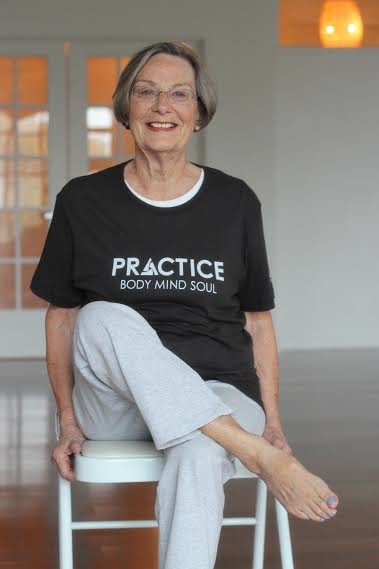Large health care institutions can no longer define wellness. Each of us must find and refine self-care practices for ourselves.
I’ve been thinking about this idea lately, that health care is essentially self care. Both are timely topics. Health Care is defined as “the maintenance and improvement of physical and mental health, especially through the provision of medical services,” and self care is defined as “activities we engage in to find and nurture connection to ourselves, our minds, bodies and others.”
If you are anything like me, when I think of health care I think of large, hospital systems and institutions or the fact that I am overdue for an annual physical. Self care, or the ways and tools I use to take care of myself on a daily and sometimes moment-to-moment basis is different. But, in fact, there are deep threads connecting the two.
New and uncertain changes in the way systems deliver healthcare in our country are imminent and it’s more important than ever to focus on taking care of our physical, mental, emotional and spiritual well-being. “Health care” must begin with the personal responsibility of self-care. It’s pretty simple.
As a psychologist who combines talk therapy and mindful practices such as meditation, Mindfulness Based Stress Reduction (8 week course) and yoga in my work, experience has shown me that self-care is the key to health and wellness for each of us. More and more, we are seeking essential, better and affordable ways to live in a way that is not only healthy, but that allows each of us to thrive.
And this is not simply my opinion. Many healthcare institutions are now devoting significant resources to research, education and ongoing community classes and offerings as a way to teach people how to stay well and healthy. Mindfulness, meditation, yoga and compassion training are now much more in the mainstream of health care. One example of a health care/educational institution devoting resources to helping us stay well is the Center for Healthy Minds at the University of Wisconsin, under the direction and Founder, Dr Richard Davison ww:centerhealthyminds.org/ . Dr. Davidson is a psychologist and leader in the field of ongoing research into the effectiveness and benefits of mindfulness and meditation. His research focuses on neural bases of emotion, emotional style and methods to promote human flourishing that includes meditation and contemplative practices.

At the Center for Mindfulness-University of Massachusetts Medical Center www.umassmed.edu/cfm/, for example, which was founded almost 30 years ago by Dr. Jon Kabat-Zinn, participants in the 8 week Mindfulness Based Stress Reduction Course (MBSR) learn to take care of themselves as self-care becomes health care. And research into mindfulness as a tool to reduce stress and create wellness is deeply embedded in the medical culture. Self-care is an invaluable tool that has become a part of the health care delivery system within a large medical institution.
I was a runner for years as a way to stay in shape and reduce my stress. And then I discovered yoga about 7 years ago. Although I still run, I rely on yoga, mindfulness meditation and a regular sleep routine, as the key elements in my daily and weekly self-care regimen. Each of these self-care practices (and of course there are many others) allow me to find and nurture a connection to my mind and body.
Here is some research that supports Yoga, Mindfulness Meditation and Sleep as important elements of self care.
Yoga
Several studies have found yoga to have a positive effect on certain cardiovascular risk factors. In September 2016, the American Heart Association published guidelines and the benefits of yoga for cardiac patients; www.heart.org/HEARTORG/HealthyLiving/PhysicalActivity/Yoga. Yoga has helped lower blood pressure in people with hypertension as well as increasing or restoring “baroreceptor sensitivity,” which is the body’s ability to sense imbalance in blood pressure and maintain balance.
Yoga has also been found to improve lipid profiles in healthy people as well as in persons with known coronary artery disease (CAD). It has also been shown to lower excessive blood sugar levels in persons with non-insulin dependent diabetes and decrease their need for medication.
Yoga is now included in many cardiac rehabilitation programs because of these health benefits!
Use of Yoga for Health in the United States.
Yoga is the sixth most commonly used complementary health practice among adults with more than 13 million adults practicing yoga according to the 2007 National Health Interview Survey by the NIH.
Many people who practice yoga do so to maintain their health and well-being, improve physical fitness, relieve stress, and enhance their quality of life. In addition, yoga can successfully address specific health conditions, such as back pain, neck pain, arthritis, and anxiety.
What the Science Says About Yoga

Current research suggests that a carefully adapted set of yoga poses may reduce low-back pain and improve function. Other studies also suggest that practicing yoga (as well as other forms of regular exercise) might improve quality of life; reduce stress; lower heart rate and blood pressure; help relieve anxiety, depression, and insomnia; and improve overall physical fitness, strength, and flexibility.
For example, one NCCIH-funded study of 90 people with chronic low-back pain found that participants who practiced Iyengar yoga had significantly less disability, pain, and depression after 6 months.
Mindfulness and Mindful Meditation
Mindfulness is so popular (Mindful Revolution, Time Magazine, February 2014), that it almost needs no introduction as a tool for self-care. Formal and informal mindfulness practices cultivate the ability to center our attention on the present moment, on what is happening in our lives (inside and outside ourselves), RIGHT NOW. Anecdotally, the benefits of becoming more mindful pre-date Buddha, and all ancient traditions have contemplative practices designed for self-care and awakening.

In 2015, I wrote a blog for the Huffington Post suggesting 5 reasons to practice mindfulness:www.huffingtonpost.com/lisa–langer-phd/5–reasons–to–practice… The first reason is that mindfulness is free, freeing and is a universal practice. That means, it can be practiced by everyone. Mindfulness is affordable health care!
Earlier this year, (2016), Johns Hopkins researchers published a meta-analysis designed to determine the efficacy of meditation programs in improving stress symptoms such as anxiety, depression, stress/distress, positive mood, eating habits, sleep pain and weight in diverse adult populations, and to show the health benefits of mindful meditation.
After reviewing 47 trials with 3515 participants, findings demonstrated many positive benefits of mindfulness meditation programs. There was moderate evidence for example, of a decrease in anxiety at 8 weeks (pre and post Mindfulness Based Stress Reduction (MBSR) course), a decrease in depression symptoms at 8 weeks as well a lowering of physical pain, improved stress/distress and mental health-related quality of life.
Sleep
Sleep is a very important area of self care that impacts our health and has recently gained national attention. Arianna Huffington published “The Sleep Revolution”; ariannahuffington.com/books/the-sleep-revolution, this year, and has focused national attention on the benefits of sleep as a way to care for ourselves.
When I am able to sleep between 7–8 hours a night, unplug from all electronic devices, settle down before turning off the lights, I feel more cared for, nurtured and rested. A regular sleep routine is essential. According to Huffington, “We are living in a golden age of sleep science-revealing all the ways in which sleep and dreams play a vital role in our decision making, emotional intelligence, cognitive function and creativity. And how lack of sleep is often the culprit behind anxiety, stress, depression and a myriad of health problems.(pg.9 The Sleep Revolution).
REPRISE. Health Care starts with Self-Care.
Health care must begin at the personal level. It’s pretty simple, really. Each one of us learning to take such good care of ourselves moment-to-moment-to moment. There are deep threads that connect self care and health care. My personal and professional experience with mindfulness training, the 8-week Mindfulness Based Stress Reduction course (MBSR), yoga and sleep has shown this to be true, over and over again. Begin with one tool and see what happens. Don’t believe me, see for yourself…. Start now.
Originally published at medium.com


